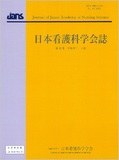Japanese
English
- 販売していません
- Abstract 文献概要
- 参考文献 Reference
要旨
目的:「脳卒中後疲労のセルフマネジメント」の概念を明らかにした.
方法:PubMed,CINAHL,APA PsycINFO,医学中央雑誌から抽出した24文献をRodgers(2000)の概念分析法で分析した.
結果:脳卒中後疲労のセルフマネジメントとは,脳卒中後疲労への適応,改善を果たすために【知識の獲得】【脳卒中後疲労の受け入れ】【ライフスタイル・価値観の変更】【セルフモニタリング】【エネルギーの消耗抑制】【活動意欲の保持】【活動予定の立案と柔軟な調整】【適正な生活習慣】【活動・休息バランスの保持】【生活環境調整】【他者からの理解・支援の要請】【教育・専門家支援の要請】という対処法を用いて,脳卒中後疲労に対処する【主体的な問題解決】のプロセスであった.
結論:脳卒中後疲労のセルフマネジメントは,脳卒中後疲労に対処する主体的な問題解決のプロセスであり,それを支援する介入の開発が期待される.
Aim: This study aimed to clarify the concept of "self-management of post-stroke fatigue."
Methods: Search targets were publications recorded in PubMed, CINAHL, APA PsycINFO, and Igaku Chuo Zasshi. All 24 extracted publications were subjected to conceptual analysis as described by Rodgers (2000).
Findings: "Self-management of post-stroke fatigue" was a [proactive problem-solving] process to deal with post-stroke fatigue that involved measures such as [gain knowledge], [accept poststroke fatigue], [change lifestyle/values], [self-monitoring], [reduce energy consumption], [maintain motivation for activities], [set activity plans and make adjustments flexibly], [maintain appropriate lifestyle habits], [maintain activity/rest balance], [adjust living environment], [request support/understanding from others], and [request education/support from specialist].
Conclusion: Self-management of post-stroke fatigue is a proactive problem-solving process to deal with post-stroke fatigue. The development of interventions to support problem-solving is expected.
Copyright © 2023, Japan Academy of Nursing Science. All rights reserved.


